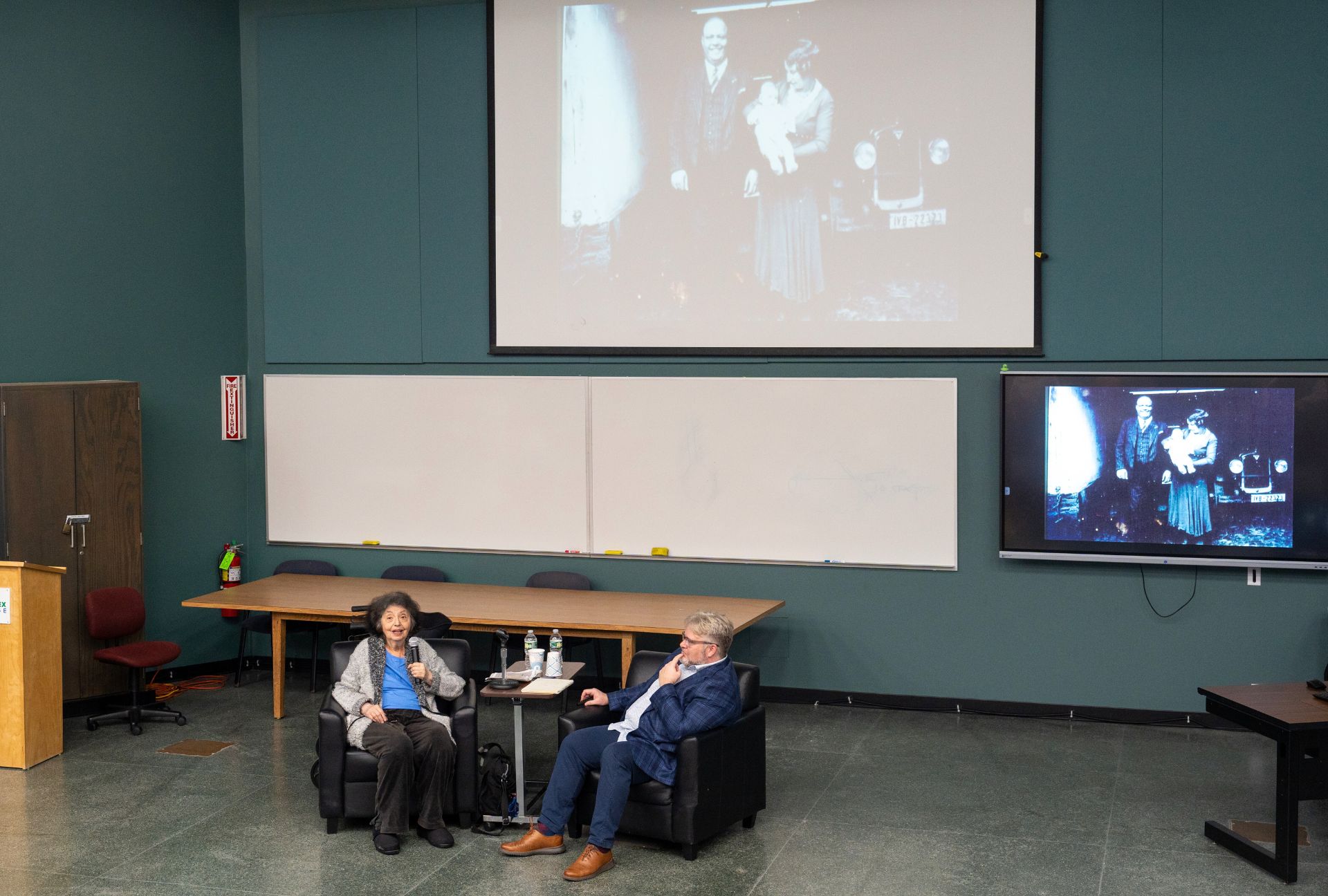Theresienstadt Concentration Camp Survivor Visits Middlesex College to Share Story of Survival
Inge Auerbacher, accomplished author and chemist, visited Middlesex College to recount her story of survival during the Holocaust.

Inge Auerbacher was just 7 years old when she was forcibly removed from her home in Kippenheim, Germany, to the Theresienstadt Concentration Camp in Czechoslovakia. Middlesex College had the privilege of having Auerbacher as a guest speaker to share her story with the campus community.
Auerbacher was the last Jewish child born in her village of Klippenheim, where she detailed having an early childhood surrounded by a loving family and a beautiful community. Just before her 4th birthday, a riot broke out in the streets. Her mother shielded her as the windows in their home were shattered. Auerbacher, her mother, and grandmother hid in a shed in the backyard while the chaos ensued. That same day, her grandfather was arrested in the town synagogue while saying his morning prayers. The infamous event now known as “Kristallnacht,” or “The Night of Broken Glass,” lives vividly in Auerbacher’s memories. Just three years later, she and her parents were sent to Theresienstadt.
Out of the 15,000 children imprisoned in Theresienstadt, Auerbacher was of the less than one percent who survived. She endured almost three years of malnutrition, illness, and abuse before she was liberated. On May 8, 1945, the day Theresienstadt was liberated, a soldier handed Auerbacher a piece of bread with butter, which she described as “heavenly.”
“To me, the two worst things you can experience is losing your freedom and being hungry,” Auerbacher shared.
Auerbacher continued to face and overcome hurdles following liberation. Her family moved to Brooklyn, New York, where she experienced immense health struggles due to the impacts of previous malnutrition, keeping her hospitalized for two years. This did not stop Auerbacher’s drive to achieve more. Though she lost several years of schooling, Auerbacher graduated with honors from Bushwick High School and obtained her bachelor’s degree in chemistry. She worked in clinical research and biochemistry for 38 years.
In her spare time, Auerbacher enjoys writing. She has dozens of published poems and articles, as well as eight books, all non-fiction, reflecting various pivotal points of her life. She has been granted several prestigious awards for these works in human rights activism.
Now approaching “91 years young” as she says, Auerbacher is retired and lives in the Jamaica neighborhood of Queens, New York, where she is part of a vibrant community of people of all backgrounds. She now travels the world telling her story in hopes that people continue to be educated and accept one another.
“When people don’t know each other, they hate them,” Auerbacher said. “This is why I do what I do. So history does not repeat itself.”

